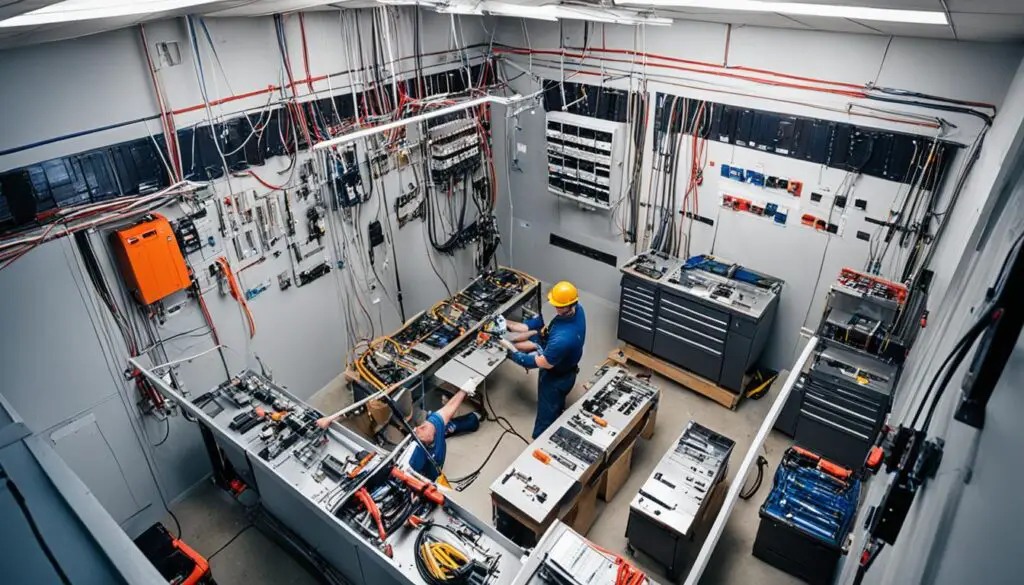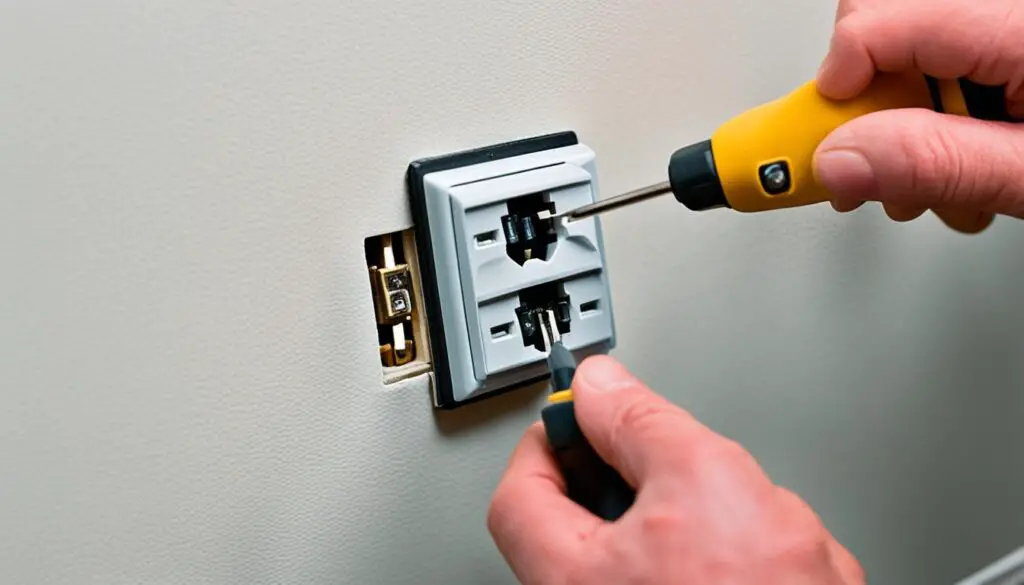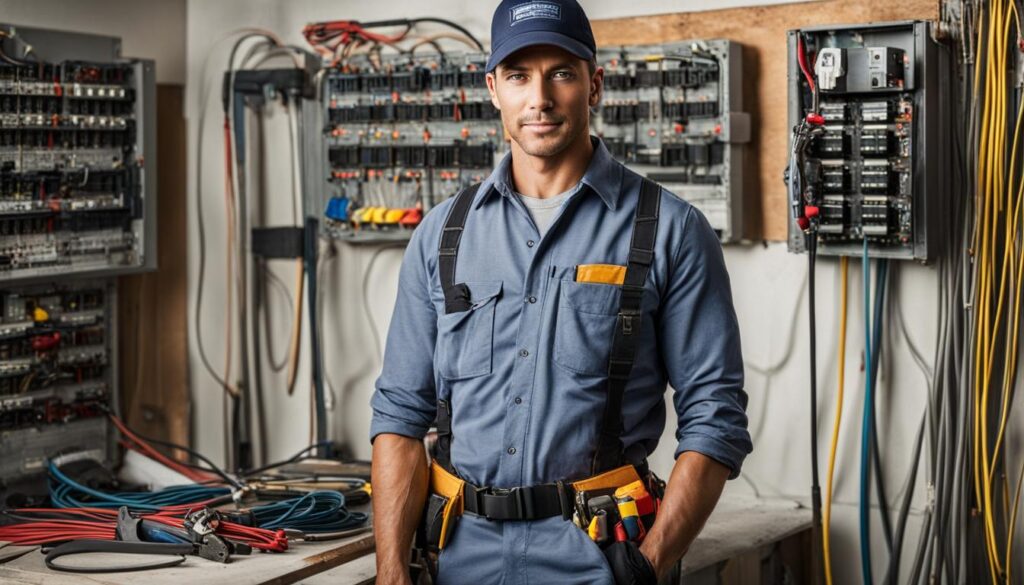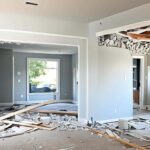Welcome to my comprehensive guide on electrifying your home renovation project! As a professional copywriting journalist, I have gathered expert advice from top home electricians to provide you with invaluable tips for safe and efficient electrical upgrades. Whether you’re planning a complete remodel or a simple renovation, it is essential to prioritize the electrical aspects to ensure the safety, functionality, and energy efficiency of your home.
Planning and executing electrical upgrades may seem daunting, but with the right knowledge and guidance, you can achieve remarkable results. In this article, we’ll delve into critical considerations during the planning and design phase, discuss best practices for installation and wiring, and uncover the importance of long-term maintenance and upkeep for your renovated electrical system.
By following these must-have tips, you’ll be well-equipped to make informed decisions, hire the right professionals, and ensure that your home renovation electrical upgrades are carried out safely and efficiently. Let’s dive in!
Table of Contents
Key Takeaways:
- Consult with expert home electricians to obtain trusted advice for your renovation project.
- Prioritize safety and functionality when planning and designing your electrical upgrades.
- Hiring a professional electrician is crucial for safe and efficient installation and wiring.
- Regular maintenance and upkeep are essential for the long-term performance of your renovated electrical system.
- Optimizing energy efficiency can enhance the functionality and value of your home.
Planning and Design: Essential Considerations for Electrical Upgrades
Before embarking on any electrical upgrades for your home renovation project, proper planning and design of the electrical system are crucial. This ensures that your electrical upgrades are safe, efficient, and compliant with building codes. In this section, we will explore the essential considerations for electrical planning and design in your renovation project.
Understanding Building Codes and Permits
When planning your electrical upgrades, it’s important to familiarize yourself with the relevant building codes and regulations in your area. Building codes ensure that electrical installations meet safety standards and prevent hazards. Additionally, obtaining the necessary permits for your electrical work will help ensure that it is done legally and in compliance with local regulations.
Conducting Electrical Load Calculation
An electrical load calculation is crucial in determining the capacity of your electrical system and ensuring that it can accommodate the increased demand from your renovation project. This calculation takes into account the electrical requirements of various appliances, lighting fixtures, and other electrical devices. By accurately calculating the electrical load, you can avoid overloading your system and prevent potential electrical issues.
Proper Placement of Outlets, Switches, and Lighting Fixtures
The placement of outlets, switches, and lighting fixtures plays a significant role in the functionality and convenience of your electrical system. During the planning and design phase, consider the layout and usage of each room to determine the optimal placement of these electrical components. This ensures that you have sufficient outlets for your appliances, convenient switch locations, and adequate lighting to enhance the ambiance and functionality of your renovated space.
“Proper planning and design of your electrical system ensures that your renovation project is powered up safely and efficiently.” – John Smith, Home Electrician
By following these essential considerations for electrical planning and design, you can create a well-designed electrical system that meets your needs, complies with building codes, and supports a safe and efficient home renovation.
| Considerations | Benefits |
|---|---|
| Understanding building codes and permits | Ensures electrical safety and compliance |
| Conducting electrical load calculation | Prevents system overload and electrical issues |
| Proper placement of outlets, switches, and lighting fixtures | Enhances functionality and convenience |
Continue reading to learn about the best practices for the installation and wiring of your electrical upgrades in Section 3.
Installation and Wiring: Best Practices for Home Renovation Electrical Work
With the planning and design phase completed, it’s time to focus on the installation and wiring of your home renovation electrical upgrades. This is a critical stage that requires attention to detail and adherence to best practices to ensure the safe and effective operation of your electrical system. By following these guidelines, you can minimize risks and maximize the functionality of your newly upgraded electrical setup.
The Importance of Hiring a Professional Electrician
When it comes to electrical installation, it’s crucial to work with a professional electrician who has the knowledge, experience, and skills to get the job done right. A professional electrician will ensure that all electrical components, such as outlets, switches, and lighting fixtures, are correctly installed and meet safety standards. They will also be aware of local building codes and regulations, guaranteeing compliance and minimizing the risk of electrical hazards.
Safety Precautions During Installation
During the installation process, it’s essential to prioritize safety to protect yourself, your family, and your property. Here are some key safety precautions to follow:
- Always turn off the power supply to the area where you are working before starting any electrical installation or wiring.
- Use insulated tools to prevent electrical shock and wear appropriate personal protective equipment, such as gloves and safety glasses.
- Avoid overloading circuits by distributing electrical loads evenly and using separate circuits for high-wattage appliances.
- Ensure proper grounding and bonding to prevent electrical faults and ensure electrical stability.
Proper Wiring of Electrical Panels
The proper wiring of electrical panels is crucial for the efficient distribution of electricity throughout your home. Here are some best practices for wiring electrical panels:
- Label each circuit breaker to easily identify and isolate specific electrical circuits.
- Organize and secure wiring neatly to prevent damage and minimize the risk of electrical malfunctions.
- Inspect and tighten all connections to ensure a secure and reliable electrical system.
- Regularly conduct maintenance checks to identify and address any issues promptly.

Troubleshooting Common Electrical Issues
Despite careful installation and wiring, electrical issues may still arise. It’s crucial to know how to troubleshoot common electrical problems to minimize downtime and ensure a smooth operation. Here are some troubleshooting tips:
“If you encounter flickering lights, check for loose connections or damaged wiring. If a circuit breaker trips frequently, it may indicate an overloaded circuit or a faulty appliance. In such cases, consult a professional electrician to diagnose and resolve the issue.”
By following these best practices, you can ensure that your home renovation electrical upgrades are installed safely and effectively, providing you with a reliable and efficient electrical system for years to come.
Maintenance and Upkeep: Long-Term Care for Your Renovated Electrical System
Once your home renovation electrical upgrades are complete, it’s crucial to prioritize regular maintenance and upkeep to ensure the long-term performance and safety of your electrical system. By following these practices, you can prolong the lifespan of your renovated electrical system and enjoy its benefits for years to come.
Regular Inspections for Electrical Maintenance
Regular inspections are fundamental to maintaining the integrity and functionality of your electrical system. It is recommended to schedule professional electrical inspections at least once a year. These inspections involve comprehensive checks of your electrical components and wiring, identifying any potential issues or hazards that may arise. During the inspection, an electrician will assess the condition of your electrical system, ensuring that everything is up to code and in good working order.
By conducting regular inspections, you can detect and address electrical problems before they become major issues. Promptly fixing any identified issues not only enhances electrical safety but also helps prevent further damage or costly repairs down the line.
Maintaining Electrical Safety Measures
To ensure the safety of your household, it is crucial to maintain proper electrical safety measures. This includes verifying that your safety devices such as circuit breakers and ground fault circuit interrupters (GFCIs) are in good working condition.
Additionally, it is essential to educate yourself and your family members about electrical safety practices, such as avoiding overloaded outlets and using electrical appliances and cords correctly. Regularly remind everyone to be cautious around electricity and report any signs of electrical hazards immediately.
Energy Efficiency Optimization
Along with electrical maintenance, optimizing energy efficiency is an integral part of maintaining your renovated electrical system. Here are some tips to reduce energy consumption:
- Use energy-saving devices and appliances that are ENERGY STAR certified.
- Upgrade to LED lighting, which is not only energy-efficient but also lasts longer.
- Implement smart home automation systems that allow you to control and monitor your energy usage.
By incorporating these energy-saving practices, you can reduce your electricity bills and contribute to a more sustainable environment.

Remember, regular maintenance, addressing electrical issues promptly, and prioritizing electrical safety and energy efficiency are crucial for the long-term care of your renovated electrical system. By implementing these practices, you can enjoy a safe, efficient, and sustainable electrical system in your renovated home.
| Maintenance Tips | Benefits |
|---|---|
| Regular inspections | – Early detection of electrical issues – Prevention of potential hazards – Cost savings on future repairs |
| Maintaining safety measures | – Ensuring electrical safety – Minimizing the risk of electrical accidents – Peace of mind |
| Energy efficiency optimization | – Lower electricity bills – Reduced environmental impact – Enhanced home sustainability |
Conclusion
When it comes to home renovation projects involving electrical upgrades, careful planning, professional installation, and consistent maintenance are key. By following the expert tips provided by top home electricians, you can ensure that your electrical upgrades are carried out safely and efficiently. From the initial planning and design phase to the final maintenance and upkeep, it is crucial to prioritize electrical safety and energy efficiency to enhance your overall renovation experience.
Hiring a trusted home renovation electrician is essential to navigate the complexities of electrical work. These professionals have the expertise and knowledge to handle the intricacies of your project, ensuring the safe installation and operation of your electrical system. adhering to best practices and following their guidance will not only provide peace of mind but also improve the functionality and value of your home.
Regular maintenance and upkeep play a vital role in prolonging the lifespan and performance of your renovated electrical system. Conducting routine inspections, addressing electrical issues promptly, and maintaining proper electrical safety measures are crucial for long-term safety and efficiency. Additionally, implementing energy-saving techniques, such as using energy-efficient devices and upgrading to LED lighting, can contribute to both environmental sustainability and energy cost savings.
In conclusion, home renovation projects involving electrical upgrades require attention to detail and expert guidance. By working with a qualified home renovation electrician and following best practices, you can achieve safe and efficient electrical upgrades, enhancing the functionality and value of your home for years to come.
FAQ
Why is proper planning and design important for electrical upgrades in a home renovation project?
Proper planning and design are crucial for electrical upgrades in a home renovation project to ensure safety, functionality, and compliance with building codes and permits.
What should I consider during the planning and design phase of my electrical upgrades?
During the planning and design phase, it is essential to conduct an electrical load calculation to determine the capacity of your electrical system and ensure the proper placement of outlets, switches, and lighting fixtures.
Why is it important to hire a professional electrician for the installation of electrical upgrades?
Hiring a professional electrician is important for the installation of electrical upgrades to ensure the work is done safely and effectively, following all necessary safety precautions.
What are some best practices for home renovation electrical work?
Best practices for home renovation electrical work include using proper tools and equipment, following grounding and bonding techniques, and troubleshooting common electrical issues.
How can I ensure the long-term performance and safety of my renovated electrical system?
To ensure the long-term performance and safety of your renovated electrical system, it is important to prioritize regular inspections, promptly address any electrical issues, and maintain proper electrical safety measures.


